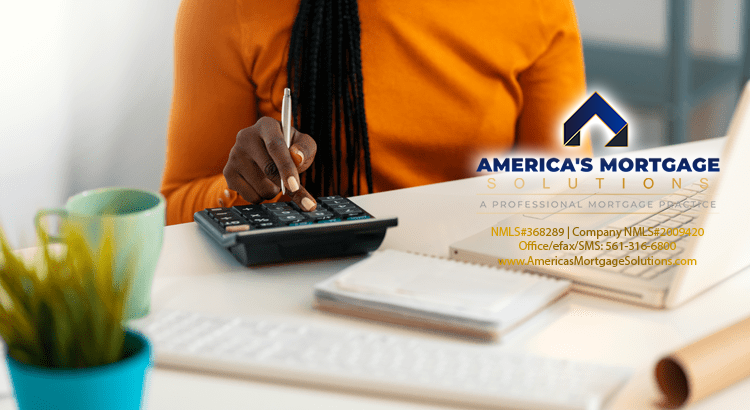
What To Save for When Buying a Home
Knowing what to budget for when buying a home may feel intimidating — but it doesn’t have to be. By understanding the costs you may encounter upfront, you can take control of the process.
Here are just a few things experts say you should be thinking about as you plan ahead.
1. Down Payment
Saving for your down payment is likely top of mind. But how much do you really need? A common misconception is that you have to put down 20% of the purchase price. But that’s not necessarily the case. Unless it’s specified by your loan type or lender, you don’t have to. There are some home loan options that require as little as 3.5% or even 0% down. An article from The Mortgage Reports explains:
“The amount you need to put down will depend on a variety of factors, including the loan type and your financial goals. If you don’t have a large down payment saved up, don’t worry—there are plenty of options available . . .”
A trusted lender will go over the various loan types with you, any down payment requirements on those, and down payment assistance programs you may qualify for. The more you know ahead of time, the easier the process will be. And the key to getting the information you need is working with a pro to see what’ll work best for your situation.
2. Closing Costs
Make sure you also budget for closing costs, which are a collection of fees and payments made to the various parties involved in your transaction. Bankrate explains:
“Mortgage closing costs are the fees associated with buying a home that you must pay on closing day. Closing costs typically range from 2 to 5 percent of the total loan amount, and they include fees for the appraisal, title insurance and origination and underwriting of the loan.”
When it comes to closing costs, a trusted lender can guide you through specifics and answer any questions you may have. They can also give you a better idea of how much you should be prepared to pay so you can cruise through your closing with confidence.
And as you plan ahead for closing day, be sure to budget for your real estate agent’s professional service fee too, in case the seller doesn’t cover it. But don’t worry, you’ll work with your agent ahead of time to agree on what this is, so you won’t be surprised at the finish line.
3. Earnest Money Deposit
And if you want to cover all your bases, you can also consider saving for an earnest money deposit (EMD). According to Realtor.com, an EMD is typically between 1% and 2% of the total home price and is money you pay as a show of good faith when you make an offer on a house.
But, it’s not an added expense. Instead, it works like a credit and goes toward some of your upfront costs. You’re simply using some of the money you’ve already saved for your purchase to show the seller you’re committed and serious about buying their house. Realtor.com describes how it works as part of your sale:
“It tells the real estate seller you’re in earnest as a buyer . . . Assuming that all goes well and the buyer’s good-faith offer is accepted by the seller, the earnest money funds go toward the down payment and closing costs. In effect, earnest money is just paying more of the down payment and closing costs upfront.”
Keep in mind, this isn’t required, and it doesn’t guarantee your offer will be accepted. It’s important to work with a real estate advisor to understand what’s best for your situation and any specific requirements in your local area. They’ll advise you on what moves you should make so you can make the best possible decisions throughout the buying process.
The key to a successful homebuying savings strategy? Being informed about what you need to save for. Because, when you understand what to expect, you can plan ahead. With an expert agent and a trusted lender, you’ll have the information you need to move forward with confidence.
What to Save for When Buying a Home
The journey of buying a home is an exciting adventure—a milestone for many, yet it requires thoughtful planning and preparation. Success lies in understanding the costs involved and implementing a solid savings strategy. To make the process smoother, here’s a comprehensive guide to what you need to save for when embarking on your homebuying process.
The Foundation: Your Down Payment
The cornerstone of your home purchase is the down payment. While many believe you need to put down 20% of the purchase price, this isn’t always the case. Depending on your loan type, some home loan options require as little as 3.5% or even 0% down. Down payment requirements vary widely, influenced by factors such as financial goals, loan terms, and specific programs available in your area.
For instance, down payment assistance programs can significantly reduce the financial strain for eligible buyers. These programs often cater to first-time buyers or those meeting certain income thresholds. Collaborating with a trusted lender or a West Palm Beach mortgage broker can help you navigate these options efficiently.
A strong savings strategy for your down payment not only accelerates the process but also provides flexibility in negotiating your loan terms. Buyers should regularly evaluate their progress, consider automated savings plans, and explore resources like Bankrate for tips on effective financial preparation.
Key Tip:
- Start by determining your home price range and calculating how much to save based on the total loan amount. Utilize tools like West Palm Beach mortgage calculators to estimate numbers and plan accordingly.
Budgeting for Closing Costs
Often overlooked, closing costs are a crucial component of your financial preparation. These fees typically range between 2% and 5% of the total loan amount and encompass various mortgage fees, including:
- Appraisal
- Title insurance
- Origination fees
- Underwriting fees
According to Bankrate, mortgage closing costs are payable on closing day and cover services provided by multiple parties in the transaction. Additionally, you’ll want to budget for closing costs to include your real estate agent’s professional service fee, unless covered by the seller.
By working closely with an expert agent or a local mortgage lender in West Palm Beach, you can gain insights into reducing these costs. Some lenders may even offer incentives like credits toward closing expenses, while a savvy real estate advisor can identify opportunities to negotiate seller concessions to offset your out-of-pocket costs.
Strategies to Reduce Closing Costs:
- Compare lender estimates to identify competitive offers.
- Research down payment assistance programs that may cover part of your closing fees.
- Consider timing your home purchase during slower market periods for better negotiating power.
The Importance of the Earnest Money Deposit (EMD)
When submitting a good-faith offer, you’ll likely need to include an earnest money deposit (EMD). Typically amounting to 1% to 2% of the home price, this deposit demonstrates your commitment to the real estate seller. Fortunately, the EMD isn’t an added expense. It serves as a credit applied toward your down payment or closing costs upon completing the deal.
As explained by Realtor.com, the EMD reassures sellers of your seriousness, though it doesn’t guarantee your offer will be accepted. An experienced real estate advisor can help you determine the appropriate amount and advise you on the specific requirements in your local area.
When saving for your EMD, it’s essential to account for variables like market competition. In high-demand areas like West Palm Beach, a larger EMD could give you an edge in securing your dream home.
Collaborating with a Trusted Lender
Securing a trusted lender is essential to understanding and navigating the financial aspects of buying a home. Whether you’re seeking affordable West Palm Beach home loans, first-time home buyer loans in West Palm Beach, or exploring West Palm Beach refinancing options, a reputable lender can:
- Explain home loan options tailored to your needs.
- Clarify down payment requirements and assistance programs.
- Provide preapproval through mortgage preapproval in West Palm Beach, giving you a competitive edge in the market.
Their expertise can also help you access the best mortgage rates in West Palm Beach while ensuring that every step aligns with your financial goals.
Establishing a strong relationship with a lender early on can streamline the entire process. Many lenders provide personalized consultations to review your finances, recommend strategies to improve your credit score, and suggest steps to align your financial goals with the realities of the homebuying process.
Additional Expenses to Consider
Beyond the major costs, it’s important to account for supplementary expenses that arise during the homebuying process:
- Real Estate Agent Fee
- Although many buyers assume this fee is covered by the seller, it’s wise to prepare in case it isn’t. Your real estate agent’s professional service ensures seamless navigation through the transaction.
- Inspection Fees
- While not always mandatory, inspections provide peace of mind about the property’s condition. Unexpected issues identified during inspections can become negotiating points, saving you money in the long run.
- Property Loan Advice in West Palm Beach
- Engaging a commercial mortgage broker in West Palm Beach can be invaluable if purchasing investment properties. Their expertise extends to evaluating cash flow potential, tax benefits, and long-term property value appreciation.
- Home Maintenance and Repairs
- Once you own the property, unexpected maintenance costs can arise. Setting aside a separate fund for these expenses can prevent financial strain in the future. Aim to save at least 1% of your home price annually for upkeep.
- Homeowner’s Insurance and Taxes
- These ongoing expenses are integral to owning a home. Collaborate with your trusted lender to understand how much these will add to your monthly budget. Insurance premiums can vary based on location, so ensure you’re prepared for West Palm Beach-specific factors like hurricane coverage.
- Utilities and Moving Costs
- Don’t forget to allocate funds for utility deposits, moving services, and initial furnishing of your new home. Planning ahead for these costs ensures a smoother transition into homeownership.
Building a Comprehensive Savings Strategy
The cornerstone of financial success in buying a home is meticulous planning ahead. Here’s how to craft an effective strategy:
Step 1: Define Your Budget
- Leverage tools like West Palm Beach mortgage calculators to determine affordability.
- Include all costs: down payment, closing costs, EMD, and any additional fees.
Step 2: Prioritize Savings Goals
- Allocate funds systematically for each category, starting with your down payment.
- Explore savings accounts or investments offering competitive returns to grow your funds faster.
Step 3: Work with Professionals
- Collaborate with an expert agent and a trusted lender to refine your financial plan.
- Engage a real estate advisor for insights into specific requirements in your local area.
Step 4: Stay Informed
- Keep abreast of market trends and loan options through resources like Realtor.com and Bankrate.
- Regularly reassess your plan to ensure alignment with your evolving financial situation.
Step 5: Monitor Your Credit Health
- A strong credit score can unlock better loan terms and lower interest rates. Review your credit report regularly and address any discrepancies promptly.
The Bottom Line
Successfully navigating the homebuying process requires thorough financial preparation, unwavering diligence, and collaboration with seasoned professionals. By understanding the nuances of down payment requirements, closing costs, and EMD, you can build a robust savings strategy tailored to your goals. Armed with expert guidance and the support of local mortgage lenders in West Palm Beach, you’ll be well-equipped to make informed decisions and achieve your dream of buying a home with confidence.
Read from source: “Click Me”
Questions, Comments or For more information you can call
Christian Penner Branch Manager at 561-316-6800 or email us at TheMortgageTeam@ChristianPenner.com
Approval Hotline: 561-316-6800
Helping You Achieve the American Dream of Home Ownership
Or You can click “Call Me” below to call Christian Penner directly using Google Voice
















